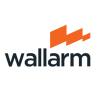Wallarm Innovation Update: Effective API Protection With GraphQL And API Policy Enforcement
With its exceptional ability to improve application flexibility, performance, and user experience, GraphQL is rapidly becoming one of the most widely adopted API protocols, with Gartner predicting that by 2025 it will be implemented by over 50% of enterprises. However, the same flexibility that makes GraphQL such an attractive protocol, however, also makes it susceptible to a variety of unique attacks.
Negative security models define what to block with signatures and rules, but focus on blocking known-bad events. Positive security models provide an additional layer of defense by allowing you to define what’s allowed, while blocking everything else. In API and application development, positive security models can shift security left by connecting developers with defined specifications for their APIs, taking a more proactive approach to minimizing breaches and downtime.
Wallarm is committed to developing solutions that protect your APIs and applications from new and evolving threats, and are addressing GraphQL and positive security modeling with two of our recent releases. In this webinar, you will learn how Wallarm can:
- vDetect and block common GraphQL attacks defined by OWASP, including injections, denial of service, batching attacks, authorization abuse, information disclosure and others.
- Quickly define security policies to remediate GraphQL-specific attacks
- Detect and prevent API specification violations like unspecified requests, unknown parameters, missing required parameters, invalid data types, and incorrect authentication methods
Join us to gain valuable new insights into the evolution of API vulnerabilities and prepare for the challenges ahead.

